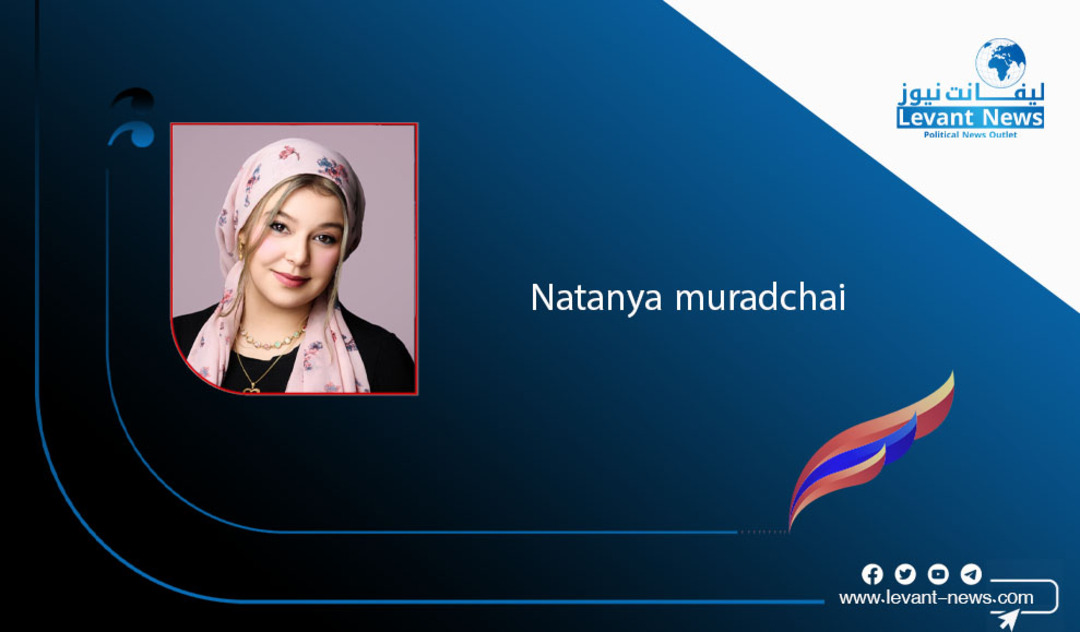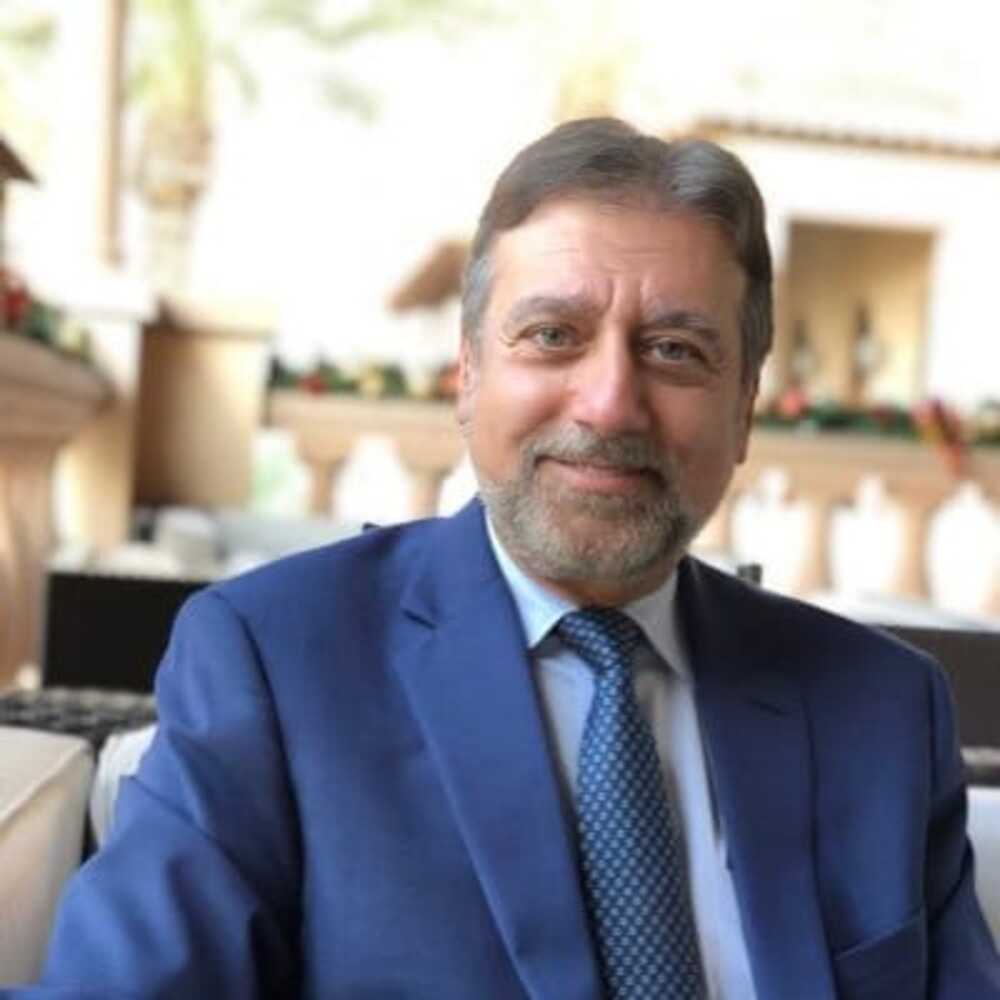-
Navigating Challenges and Opportunities: Rabbi Elie Abadie on the Sephardic Jewish Community in the Arabian Peninsula

Interview with Rabbi Elie Abadie: Challenges of the Jewish Diaspora and the Possibility of Establishing a Jewish Community in the Arabian Peninsula.
In an exclusive conversation with Rabbi Elie Abadie, a prominent leader of the Sephardic Jewish community, we discussed the challenges facing this community, both in the United States and during his time in the United Arab Emirates. He also shared insights on cooperation with other Jewish communities and the evolving dynamics of Jewish life in the Gulf region.
Challenges in Leading the Sephardic Jewish Community
Rabbi Abadie begins by emphasizing that his primary responsibility as a religious leader is to preserve and transmit the values and traditions of the Sephardic Jewish community to future generations. However, this task is not without its difficulties, which he categorizes as both internal and external.
“The internal challenges stem from the younger generation’s desire to assimilate into the broader surrounding culture, which can lead to the erosion of our unique identity. We address this by educating our youth and demonstrating that our traditions are not just customs but a rich heritage spanning centuries and millennia. To trade that for fleeting or temporary values from the surrounding culture would be a great loss,” he explains.

As for external challenges, he notes that the Sephardic Jewish community often finds itself as a minority within the larger Ashkenazi-dominated Jewish world, making it easy to lose its distinct traditions. “It is crucial to reinforce awareness of our heritage and ensure its continuity,” he adds.
Community Support and Social Services
Despite these challenges, the Sephardic Jewish community has built a strong network of organizations that provide support to its members in various areas. Rabbi Abadie details some of these services:
Medical organizations offering healthcare advice and support.
Business and entrepreneurial assistance to help members establish and grow their ventures.
Financial aid for orphans and widows, ensuring their stability.
Educational institutions, both formal and informal, that focus on religious studies and cultural preservation.
Community mediation committees that help resolve conflicts among individuals.
Cooperation with Other Jewish Communities
Rabbi Abadie highlights that the Sephardic Jewish community does not operate in isolation. Instead, it actively collaborates with other Jewish communities through national Jewish federations and rabbinical organizations.
“There is significant cooperation between the Sephardic and Ashkenazi communities in areas such as education, social initiatives, and political engagement. Our diversity is a source of strength rather than division,” he asserts.
The Impact of the Middle East Conflict on Jewish Life in the UAE
For several years, Rabbi Abadie was at the forefront of Jewish communal life in the United Arab Emirates, where the Jewish presence was growing and thriving. However, he acknowledges that the events of October 7, when Hamas attacked Israel and the subsequent Israeli response, dramatically altered the landscape for Jews in the UAE.
“We used to enjoy an open and welcoming environment, but following the war, the Jewish community in the UAE has had to adopt a much lower profile,” he says.
The most noticeable changes include:
The suspension of public Jewish prayer services and celebrations to avoid drawing attention.
Avoiding visibly Jewish attire in public for security reasons.
A reduction in official invitations, where Rabbi Abadie was previously welcomed to represent the Jewish community at public events.
Despite these restrictions, kosher restaurants and Jewish-owned businesses remain open, indicating that while the community continues to exist, it is doing so with increased caution.
Interfaith Relations in the UAE: A Unique Experience
Reflecting on his three to four years in the UAE prior to the recent conflict, Rabbi Abadie describes the experience as overwhelmingly positive.
“We had an exceptional level of coexistence with other religious and ethnic communities. We attended joint meetings, invited people of other faiths to our celebrations, and they, in turn, welcomed us to theirs,” he recalls.
Moreover, he emphasizes that the UAE government was highly supportive and protective of the Jewish community, ensuring their religious freedoms and swiftly addressing any potential threats.
The Future of Jewish Life in the Arabian Peninsula
When asked about the sustainability of a Beth Din (Jewish religious court) and a permanent Jewish community in the Gulf region, Rabbi Abadie believes that while a Beth Din is essential for any Jewish community, its establishment in the Arabian Peninsula is still premature—except in the UAE, where it was welcomed.
“In Jewish history, Beth Din courts have always been respected institutions in Arab countries. However, for one to be established in the Arabian Peninsula today, the community must first grow and solidify its presence. In the future, as the community expands, a Beth Din will play a vital role in serving Jewish life in the region,” he explains.
Conclusion
The Sephardic Jewish community, whether in the United States or the Gulf region, faces significant challenges but continues to uphold its traditions through education, collaboration, and institutional development. While recent geopolitical events have created new obstacles, Rabbi Abadie remains hopeful that Jewish-Arab relations, deeply rooted in history, can be revived and strengthened in the years to come.
Natanya muradchai
You May Also Like
Popular Posts
Caricature
BENEFIT Sponsors BuildHer...
- April 23, 2025
BENEFIT, the Kingdom’s innovator and leading company in Fintech and electronic financial transactions service, has sponsored the BuildHer CityHack 2025 Hackathon, a two-day event spearheaded by the College of Engineering and Technology at the Royal University for Women (RUW).
Aimed at secondary school students, the event brought together a distinguished group of academic professionals and technology experts to mentor and inspire young participants.
More than 100 high school students from across the Kingdom of Bahrain took part in the hackathon, which featured an intensive programme of training workshops and hands-on sessions. These activities were tailored to enhance participants’ critical thinking, collaborative problem-solving, and team-building capabilities, while also encouraging the development of practical and sustainable solutions to contemporary challenges using modern technological tools.
BENEFIT’s Chief Executive Mr. Abdulwahed AlJanahi, commented: “Our support for this educational hackathon reflects our long-term strategic vision to nurture the talents of emerging national youth and empower the next generation of accomplished female leaders in technology. By fostering creativity and innovation, we aim to contribute meaningfully to Bahrain’s comprehensive development goals and align with the aspirations outlined in the Kingdom’s Vision 2030—an ambition in which BENEFIT plays a central role.”
Professor Riyadh Yousif Hamzah, President of the Royal University for Women, commented: “This initiative reflects our commitment to advancing women in STEM fields. We're cultivating a generation of creative, solution-driven female leaders who will drive national development. Our partnership with BENEFIT exemplifies the powerful synergy between academia and private sector in supporting educational innovation.”
Hanan Abdulla Hasan, Senior Manager, PR & Communication at BENEFIT, said: “We are honoured to collaborate with RUW in supporting this remarkable technology-focused event. It highlights our commitment to social responsibility, and our ongoing efforts to enhance the digital and innovation capabilities of young Bahraini women and foster their ability to harness technological tools in the service of a smarter, more sustainable future.”
For his part, Dr. Humam ElAgha, Acting Dean of the College of Engineering and Technology at the University, said: “BuildHer CityHack 2025 embodies our hands-on approach to education. By tackling real-world problems through creative thinking and sustainable solutions, we're preparing women to thrive in the knowledge economy – a cornerstone of the University's vision.”
opinion
Report
ads
Newsletter
Subscribe to our mailing list to get the new updates!





















